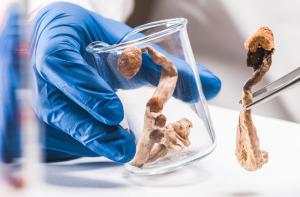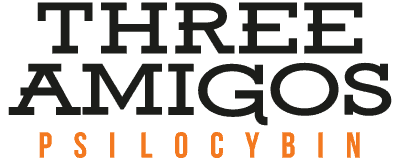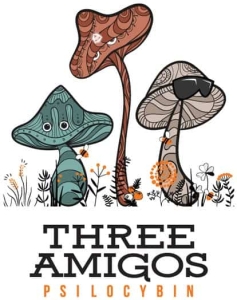How to Get Covered by Health Insurance for Psilocybin Therapy?
Today, we’re delving into the intriguing world of health insurance coverage for psilocybin therapy in Canada, where the magic of magic mushrooms, or “shrooms,” is gaining attention. It’s a topic that’s both fascinating and complex, with a landscape that’s rapidly evolving. From regulatory challenges to emerging opportunities, we’ll explore the current state of affairs and what it means for individuals seeking access to this transformative form of therapy. So, buckle up as we embark on this tour into the world of psychedelic-assisted mental health care and insurance coverage.
Psilocybin Therapy in Canada
Let’s take a look at the current landscape of health insurance coverage for psilocybin therapy up here in Canada. It’s a bit of a mixed bag, with some hurdles to overcome but also some promising opportunities on the horizon.
First off, the challenges. As it stands, health insurance coverage for psilocybin therapy is pretty much non-existent. Unlike traditional treatments that are widely covered, psychedelics are still very much in the experimental phase, which means they’re not yet recognized or reimbursed by most insurance plans. Plus, there’s the whole regulatory aspect—psychedelics are tightly controlled substances, so getting them approved for insurance coverage is no small feat.
But here’s where things get interesting. With growing evidence of the therapeutic potential of psychedelics like psilocybin, there’s a growing push to change the status quo. Researchers, advocates, and even some insurers are starting to sit up and take notice of the benefits these therapies could offer, particularly for hard-to-treat mental health conditions.
One of the biggest opportunities lies in expanding the conversation around mental health treatment options. As we grapple with a mental health crisis in Canada, there’s a growing recognition that we need to think outside the box when it comes to treatment. Psychedelic therapy offers a promising alternative to traditional approaches, and insurers may start to see the value in covering these treatments as part of a holistic approach to mental health care.
Of course, there are still plenty of challenges to overcome. Regulatory hurdles, public perception, and the need for more robust research all stand in the way of widespread insurance coverage for psilocybin therapy. But with each new study, and each new breakthrough, we’re inching closer to a future where these therapies are not only accessible but also covered by health insurance.
So, while the road ahead may be winding, the potential benefits of insurance coverage for psilocybin therapy are too significant to ignore. It’s an exciting time in the world of mental health care, and Canada has the opportunity to lead the way in embracing these innovative treatments.
Health Canada Coverage
So, Health Canada’s been keeping tabs on the growing buzz around psychedelic-assisted therapy, particularly with substances like psilocybin (yep, the good stuff in magic mushrooms) and MDMA (aka “ecstasy”). These psychedelics can create quite the ride through altered states of consciousness, potentially shaking up emotions and perceptions.
What You Need to Know Before Applying
Now, when it comes to legally getting your hands on these mind-altering substances for therapy, there’s a bit of a process. Think of it like a backstage pass—you need the green light from Health Canada’s Special Access Program (SAP). This program was revamped in January 2022 to allow healthcare pros to request access to certain restricted drugs, including psilocybin and MDMA.
But here’s the deal: snagging that pass isn’t a free-for-all. Health Canada’s not just handing them out like candy. They’re looking for solid evidence that backs up the need for the drug and its potential benefits for the patient. It’s a case-by-case review, meaning each request gets its own scrutiny.
Navigating the Application Process
So, how do you start the process? Well, first off, you’ve gotta be a licensed healthcare practitioner in the province or territory where you practice. Then, you fill out a patient-specific SAP form (let’s call it Form A) with all the nitty-gritty details—drug name, quantity needed, previous treatments tried, and why they didn’t cut it. Plus, you’ll need to dish out info on the safety and effectiveness of the drug for your patient’s specific condition.
Once you’ve dotted your i’s and crossed your t’s on the form, Health Canada takes a peek. If they give the thumbs-up, they’ll shoot a letter of authorization to the drug manufacturer, giving them the go-ahead to sell the specified amount to you.
Post-Treatment Responsibilities
But the journey doesn’t end there. You’ve gotta stay on top of things. After treating your patient with the drug, you’ll need to fill out a follow-up form (Form C) detailing how things went down. And if any adverse reactions pop up, you’re obligated to report them to Health Canada pronto.
Now, here’s a little bonus tidbit: if your request gets the green light and falls under a special class exemption, you might dodge the need for individual exemptions under the Controlled Drugs and Substances Act (CDSA). But don’t get too comfy—each case still gets its own once-over.
Can Health Insurance Pay?
The psychedelics scene is buzzing with excitement over the possibility of health insurers covering trips into the realm of magic mushrooms and ecstasy. It might sound like a stretch, but at a recent conference in New York, industry insiders were crunching numbers and making pitches to US insurers.
Why all the hype? Well, ongoing clinical trials on substances like psilocybin are showing early promise in treating some seriously tough mental health issues, which are becoming more urgent by the day. With mental health spending in the US soaring past $200 billion annually, insurers are on the lookout for effective solutions. And that’s where psychedelics come in.
These substances, often used in conjunction with therapy, are being explored as alternatives to traditional treatments like antidepressants. But here’s the kicker: psychedelic therapy sessions can be lengthy and involve careful monitoring, not to mention the counselling that follows. So, if these treatments get the green light, they’re likely to come with a hefty price tag.
Enter the insurers. Getting them on board is crucial for widespread access to psychedelic therapy. But there are hurdles to clear, including proving that these treatments are not only effective but also cost-effective. MAPS, a key player in the field, is already in talks with insurers, armed with promising data from their research on MDMA for PTSD.
Speaking of data, projections suggest that psychedelic treatments could actually save insurers millions over a 10-year period, mostly due to improved overall health rather than just mental well-being. And it’s not just about saving money—it’s about ensuring that these benefits reach everyone, not just those who can afford pricey therapy sessions.
But it’s not all smooth sailing. Regulatory approval and public perception are still major question marks. Nonetheless, the momentum is building, fueled by a growing recognition of the need for innovative approaches to mental health care.
Research on Magic Mushrooms
At Johns Hopkins Medicine, scientists have been diving deep into the effects of psilocybin, the magical ingredient found in magic mushrooms. They’ve been conducting studies with adults struggling with severe depression, and what they’ve found is truly remarkable. Participants were given two doses of psilocybin along with supportive therapy, and the results were astonishing: rapid and significant reductions in depressive symptoms. Most participants saw noticeable improvements, and half of them even achieved remission within just four weeks.
This isn’t the first time Johns Hopkins has explored the potential of psychedelics. Back in 2016, they uncovered how psilocybin could help alleviate existential anxiety and depression in individuals facing life-threatening cancer. This latest study is another step forward, showing how psychedelics like psilocybin could completely transform depression treatment, offering not just temporary relief, but lasting effects.
In a recent update, researchers followed up with the same participants from their previous studies. What they found was incredible: the profound effects of psilocybin treatment, combined with therapy, lasted for at least a year for some people. Yes, you heard that right—up to a whole year. This discovery is huge, suggesting that just a couple of doses of psilocybin could potentially provide long-term relief from depression, surpassing initial expectations. It’s a groundbreaking revelation in our understanding of how to effectively tackle major depression in the long run.

Guided Psychedelic Journey with P.A.T.H. Therapy
For Canadians seeking expert guidance on their path through psychedelic therapy, P.A.T.H. Therapy provides a structured and nurturing approach to psilocybin treatment. P.A.T.H. stands for Psychedelic-Assisted Transformative Healing, representing the combination of psilocybin’s power with traditional talk therapy methods to guide Canadians through a transformative healing journey.
Our Process with P.A.T.H. Therapy:
- Initial Consultation: Begin your journey by completing an initial intake form, helping P.A.T.H. understand your unique needs and goals.
- Your First Session: Schedule your first session with one of P.A.T.H.’s experienced therapists, skilled in providing support tailored to psychedelic experiences.
- Preparation Sessions: Engage in meaningful therapeutic discussions and intention setting to prepare yourself for the upcoming psychedelic experience.
- Integration Sessions: After your journey, integrate the new insights into your daily life with the assistance of your therapist.
Our Approach to Safety, Structure, and Support:
- Safety First: Your safety is our top priority. P.A.T.H. ensures a safe and nurturing environment throughout your therapeutic journey.
- Structured Guidance: Sessions are carefully planned to provide a clear path toward personal growth and healing, empowering you to navigate your journey with confidence and purpose.
- Compassionate Support: A team of empathetic therapists is available to listen, offer guidance, and uplift you throughout your transformative journey toward healing and self-discovery.
For more information on how P.A.T.H. Therapy can support you on your journey, visit their website at www.paththerapy.ca. They serve as a valuable resource for anyone interested in exploring the therapeutic potential of psilocybin in a controlled and professional setting.
The Makers
Enter The Three Amigos—Soul, The Professor, and The Dreamer. These lifelong companions, hailing from the lush forests of British Columbia’s West Coast, have joined forces to establish an online dispensary specializing in medicinal mushrooms. Their deep connection with nature, cultivated during their formative years spent in the wilderness, sparked a keen interest in psilocybin mushrooms. This early immersion not only prompted deep self-reflection but also ignited a passionate desire to share the healing properties of these fungi with others.
Their mission is driven by a commitment to rekindle our relationship with plant medicine, firmly believing in its ability to improve well-being, alleviate suffering, and strengthen our connection with both nature and ourselves. The Three Amigos advocate for a more self-sustaining approach to wellness, urging a shift away from excessive reliance on external health remedies.
At Three Amigos, you’re encouraged to explore the therapeutic benefits of psilocybin in various forms. Whether you prefer traditional whole mushrooms, soothing teas, convenient capsules, delectable chocolates, or playful gummies, each product offers a distinct avenue to delve into the profound and transformative effects of these magic mushrooms.

James Sullivan is a writer for Three Amigos, specializing in natural remedies and mental health. An advocate for the therapeutic use of psilocybin, he combines his passion for writing with his love for the great outdoors.




